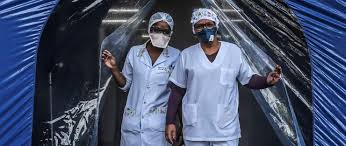
The federal government has committed to ensuring that no certified Community Health Officer (CHO) remains unemployed, reinforcing its dedication to bridging the health disparities between urban and rural Nigeria.
This pledge was made by the Coordinating Minister of State for Health and Social Welfare, Iziaq Salako, during the 5th Induction and Oath-Taking Ceremony for new CHOs in Abuja on Tuesday.
Salako acknowledged the strides made in Nigeria’s healthcare system but highlighted ongoing challenges such as workforce shortages, inadequate infrastructure, and the unequal distribution of healthcare resources. He emphasized that these issues are particularly prevalent in rural areas, where over 60 percent of the country’s population resides.
“You are not just healthcare providers; you are the vital link between government policies and the everyday realities of grassroots health,” he told the new CHOs, stressing their essential role as the first line of defense, especially in promoting preventive care and health education.
The minister reaffirmed the government’s commitment to Universal Health Coverage (UHC), emphasizing that it is a fundamental right for every Nigerian. He shared that the President Bola Tinubu-led administration is actively working toward achieving UHC, including the revitalization of 10,000 Primary Healthcare Centres nationwide.
“The government’s policy is clear: no CHO should be unemployed,” Salako declared. “We are committed to deploying and empowering community health workers to address healthcare needs, particularly in underserved regions.”
Salako also highlighted the National Health Insurance Authority’s goal to enroll 50 million Nigerians by 2027, noting that CHOs would play a crucial role in mobilizing grassroots support for this initiative.
In addition to deployment efforts, the minister assured continued backing for the Community Health Practitioners Registration Board of Nigeria, ensuring strict professional standards and continuous development for CHOs.
Salako urged the new inductees to view their certification as a “national calling” and to serve with integrity, compassion, and innovation.
He also called on Nigerians to prioritize preventive healthcare and support the work of community health practitioners in their local communities.





